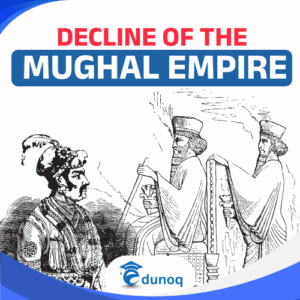Modern Indian History – UPSC Syllabus 2025
1. Decline of the Mughal Empire & Rise of Regional Powers (1707–1757)
Later Mughals and disintegration
Rise of regional states – Bengal, Awadh, Hyderabad, Mysore, Marathas, Sikhs
2. Advent of Europeans & British Expansion (1600–1857)
Arrival of European trading companies: Portuguese, Dutch, French, English
Anglo-French rivalry in India
British expansion through wars and diplomacy (Anglo-Mysore, Anglo-Maratha, Anglo-Sikh wars)
Subsidiary alliance and Doctrine of Lapse
3. Economic Impact of British Rule
Drain of wealth theory
Deindustrialization and decline of handicrafts
Land revenue systems: Zamindari, Ryotwari, Mahalwari
Commercialization of agriculture
Famines and poverty under colonial rule
4. Socio-Religious Reform Movements (18th–19th Century)
Raja Ram Mohan Roy, Ishwar Chandra Vidyasagar, Dayanand Saraswati
Brahmo Samaj, Arya Samaj, Prarthana Samaj, Aligarh Movement
Role of women reformers and social change movements
5. Uprisings and Revolts (Pre-1857)
Tribal and peasant revolts (Santhal, Munda, Indigo, etc.)
Revolt of 1857: causes, nature, consequences, significance
6. Growth of Nationalism (1858–1905)
Foundation of Indian National Congress (INC)
Early nationalists: Dadabhai Naoroji, Gopal Krishna Gokhale, Surendranath Banerjee
Economic critique of colonialism
7. Era of Extremists (1905–1919)
Partition of Bengal, Swadeshi and Boycott movements
Leaders: Bal Gangadhar Tilak, Bipin Chandra Pal, Lala Lajpat Rai, Aurobindo Ghosh
Home Rule Movement (Tilak & Annie Besant)
8. Gandhian Era (1919–1947)
Gandhi’s ideology and methods (Satyagraha, Non-violence, Civil Disobedience)
Champaran, Kheda, Ahmedabad movements
Non-Cooperation Movement, Civil Disobedience Movement, Quit India Movement
Role of women in freedom struggle
Growth of communalism and two-nation theory
9. Revolutionary & Left Movements
Bhagat Singh, Chandrashekhar Azad, Subhas Chandra Bose (INA)
Role of socialists, communists, and trade union movements
10. Constitutional, Administrative & Political Developments
Acts: Regulating Act, Pitt’s India Act, Charter Acts, Indian Councils Acts
Government of India Acts (1909, 1919, 1935)
Cripps Mission, Cabinet Mission, Mountbatten Plan
Indian Independence Act 1947
11. India’s Struggle for Independence (1939–1947)
Role of INC, Muslim League, INA
World War II and its impact on Indian freedom movement
Transfer of power and Partition
12. Post-Independence Consolidation (Brief)
Integration of princely states
Constitution-making process
Nation-building challenges (refugees, reorganization of states, economy, foreign policy beginnings)
Buy Modern India By Bipin Chandra Click Here
Syllabus of Ancient Indian History click here
Syllabus for Medieval Indian History click here



